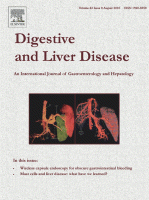Celiac.com 04/23/2007 - A study published in a recent issue of the journal Gut suggests that wheat gliadin might trigger pathological development in mucosal cells that are already abnormal, but otherwise tolerated, within the intestinal tracts of individuals with celiac disease.
Celiac.com Sponsor (A12):
Researchers at the Universita degli Studi di Napoli Federico II in Naples, Italy, led by Dr. Salvatore Auricchio looked at the effects of gliadin peptides on various cell lines and celiac mucosal cells in culture.
More specifically, the study evaluated the effects of gliadin and affiliated toxic peptides such as A-gliadin P31-43 on endocytosis, cell proliferation, apoptosis, cytoskeleton rearrangements, and activation of epidermal growth factor receptor (EGFR).
The researchers report that gliadin peptides induce EGF-like effects across a wide range of cell types. Actin rearrangements and cell proliferation are examples of these effects. Also, they state that gliadin peptides act not as ligands of the EGF receptor, but that they actually inhibit EGFR endocytosis.
According to the research team, these observations of gliadin-induced delay of EGFR endocytosis, along with S-phase entry of epithelial intestinal cells, clearly indicate that EGFR plays a role in celiac disease. Dr. Auricchio proffers that a genetic factor in celiacs may bring about deregulated activity in the endocytotic pathway that is compensated in the absence of gliadin.
The study concludes that wheat gliadin slows receptor deactivation of Epidermal Growth Factor. This may explain how wheat gliadin and related cereal prolamines trigger rapid increase in cell growth and associated disease activity in people with celiac disease.
Gut 2007;56:480-488.









Recommended Comments
There are no comments to display.